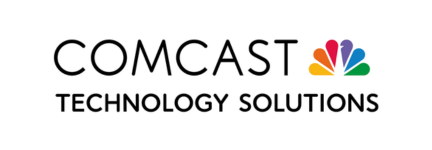
4creative’s Miketta Lane on Championing Unheard Voices, Taking Bold Creative Risks, and Centering Diversity

The nature of production as the industry knows it is evolving and fast, ushered in by challenges around sustainability, diversity, budgets, and the drive for more content at scale. To discuss all this and more, Remote Filming - the leading remote streaming service technology - is asking the industry’s top production experts about their best practices and the way they’re utilising technology to help overcome the challenges at hand in an ongoing series for LBB.
Anthony Barry, co-founder of Remote Filming says, “We’re all seeing the industry change, I believe that when it comes to tackling the myriad of production issues, especially sustainability, technology is key. Bringing together the right people and the right technology is how we can make a real difference to production, cutting costs, increasing efficiency and making it more sustainable.”
Today, LBB speaks to Miketta Lane, director of production at 4creative. The independent in-house agency has grown from strength to strength, and picked up plenty of accolades along the way to prove it. Recently, it was named Creative Review’s ‘Most Creative In-House Agency’, and last year awarded with Campaign BIG’s Consistent Creative Excellence award, plus it won Commercial of the Year at the British Arrows, and multiple Golds at this year’s Cannes Lions for the ‘Channel 4 Idents’ campaign.
Miketta tells us that Channel 4’s public service remit – to “champion unheard voices, take bold creative risks, inspire change and stand up for diversity” – drives all of the agency’s work because the people working at 4creative “really care”about it. Though Miketta has seen timelines and budgets shrink over the years, it hasn’t stopped the agency from making culture-infiltrating work that makes consumers pay attention; a result of the upfront integration practised by 4creative that thinks about every aspect of a campaign across all relevant platforms, without over-prioritising the TV ad.
Below, Miketta reveals what assisting U2 on tour taught her, how the passion of 4creative’s producers contributes to outstanding work, and how the cost of production in the UK is affecting the industry.
LBB> Miketta, thanks so much for taking part in this interview series! Were you always creative growing up? How did you find yourself in a creative industry?
Miketta> I think so, I always knew I’d work in the creative industry. My first ever paid job was as an urchin in ENO’s production of Carmen when I was 12. I wasn’t particularly academic, and I hated sports! But I tried hard, and I grafted. My mum worked in the theatre, and my passion was always performance: film, TV, theatre. I absolutely loved the art of coming together as a group and bringing something to life. The costumes, stage management, art direction. I was in every drama club and production going. But theatre felt so fleeting, I wanted to make work that would live forever. I went to University to study Film & Drama (and Psychology). But I was itching to get into the industry, and when my friends were enjoying their last few months of uni, I was already earning my stripes pushing digi-beta decks down Oxford Street.
LBB> You assisted U2 on tour. What did this experience teach you and has it been helpful in your producer career path?
Miketta> Absolutely! The skills were completely interchangeable; it was a major production. I looked after the band members day to day; managed relationships, logistics, schedules, band requests. I was the main point person between them and the teams around them, press, management, and Live Nation. I loved it. They were inclusive and collaborative - we would discuss creative, commercial, and philanthropy. Pre and post-show planning was a military operation; every day was like a shoot day. And after I walked them onstage to a crowd of 100,000+, I would go backstage and pack up their pants.
LBB> What drew you to production specifically - when did you realise it was the right career path for you?
Miketta> I’m the eldest girl of seven children. I’m a bossy-boots and a diplomat. I was always gathering my siblings and putting on shows, making films or recording mixtapes and radio shows. I’d bring us all together, distribute roles, dress us up and issue direction. I love the production process; the process of bringing talented people together to make something brilliant. The plan for as long as I can remember was to move to Hollywood and make films.
LBB> How have you seen the production landscape change and evolve over time? Or has anything surprised you in how it has developed?
Miketta> It’s changed so much. It’s so much more complex now. There’s a lot more data available, so we can know our audience better. But we can also reach them in so many more places. It’s no longer the case that all creative thinking, budget and efforts are directed at the 40” telly ad. Media plans are vast, and our producers need to wear a lot of hats. I hear a lot of talk around production needing to work upstream, but that’s always how we’ve worked at 4creative. Our producers are multi-disciplined; they work across on-air, off-air, social, experiential. They are agency producers, production company producers, account managers, project managers, and traffic managers. They are on projects from kick-off through to delivery. They champion the creativity, protect the craft, and deliver to the masses. My background is less traditional ad agency, and more entertainment. I’ve grown up, and I’ve grown, integrated producers who work direct to client. The ability to flex is crucial in production. Thinking and money have to go a lot further, so diversity of thought and skills is essential.
LBB> Channel 4 has a remit of public service obligations that it must fulfil. Can you talk a little about that and how, if at all, you approach that in your role as part of 4Creative?
Miketta> I love Channel 4. I can’t stay away. And Channel 4’s remit makes up our DNA. We champion unheard voices, take bold creative risks, inspire change and stand up for diversity. People work at Channel 4 because they really care about the remit, and that shows in everything we do and make, on and off screen. We partner with our marketing team to take creative risks together, and we do so in an inclusive environment. I have three children, five years old and under, so I only work three days a week. But I’m given the space, championed, and supported to lead 4creative alongside our ECD. A small, independent agency, that has been ranked as best-in-class on both the UK and international stage. Most recently named Creative Review’s ‘Most Creative In-House Agency’, and last year awarded with Campaign BIG’s Consistent Creative Excellence award. Channel 4’s recent idents, and their representation of a modern-day Britain, received Commercial of the Year at the British Arrows, and Gold at last week’s Cannes Lions. It’s a testament to how we strive to be inclusive and representational, both in the work and in the workplace.
LBB> Which of 4ceative’s productions are you particularly proud of? Which sticks in your memory most and why?
Miketta> Paralympics 2012, Alternative Voices, and our most recent Channel 4 idents. Because they embody the Channel 4 remit; champion unheard voices, take bold creative risks, inspire change and stand up for diversity – and they embody our absolute love of craft.
LBB> How do you ensure impact and success of campaigns across platforms? Are certain platforms more difficult to produce for and/or get attention on?
Miketta> It sounds obvious, but upfront integration. It’s often the case that the TV ad is prioritised, and everything else follows as an afterthought. Upfront campaign mapping allows for fully integrated thought, approach, and budget. Our recent campaign for ‘Partygate’ is a great example. It had such a strong visual identity; it was able to exist in so many forms. The TV was brilliant, but it was just clip-based. The design concept came to life across OOH, press, and social. Throw in a BoJo look-alike, on the decks, in parliament square - and you have enough content to fill a campaign map multiple times over. It was a real collaborative effort between creative, design and production, right from the initial creative development stage.

LBB> Which industry trends/issues do you find affect what you do most, i.e. sustainability, diversity, different platforms, demand for high volumes of content, etc. How are you addressing these?
Miketta> All of the above. The complexity of campaigns these days can make it harder to prioritise the issues that feel so big – like D&I and sustainability. Across the industry, it needs to be a top-down approach and the whole sector needs to weave these themes into ways of working as standard. And, across the industry we need to get more diversity into our HOD’s faster. That diversity of thought needs to cascade, we can’t keep waiting for the next generation of talent to rise up the ranks. Sustainability targets need to be mandated - not just nice to have. It’s hard; expectations are increasing, and budgets have to go further. There’s a lot of demand of production, and a lot to consider.
LBB> What role does technology play, like remote streaming or AI for example, in helping to address the trends shaping the creative industry?
Miketta> It plays a big role, but in the creative industry I think it should play a supporting role, not a leading role. At 4creative, we’ve already started identifying tools that will be hugely valuable in production; in conception and visualisation, music and footage search, clean-up and subtitling. It makes elements of the execution quicker, more efficient and more accessible. But the human creative vision can never be replaced.
LBB> Why do you think as an industry we’re still doing so much travelling for shoots and productions? Is it really necessary?
Miketta> It’s necessary because in a time where budgets have to go so much further, shooting in the UK is becoming so much more expensive. My husband is a freelance producer, and because of our young children travel isn’t always a possibility. Post covid and post Brexit, there are so many exceptionally talented crew not in work, because it’s much more cost effective to shoot in Eastern Europe. It’s a shame. So much of it’s down to inflation, and I really hope this changes and the film industry in the UK will thrive again soon! On the flip side, tech advancement allows for much more remote production, so we don’t need to fly scores of people across the globe for international locations.
LBB> Some brands are mandating a maximum number of people to attend shoots to improve the sustainability of their work. Is this something that Channel 4 does? What are your thoughts on the practice in general?
Miketta> We strive to shoot as much as we can in the UK. We very rarely shoot abroad, so it doesn’t really affect us. But minimising the impact on the planet, and the number of opinions on set? It doesn’t sound like a bad idea.
LBB> The ‘noisy content landscape’ conversation is inescapable – what do you think is the key to creating work that cuts through the noise?
Miketta> Creating work that people will talk about, and that they can enjoy as they go about their everyday lives. We work for an entertainment brand, but all advertising should entertain. I think Channel 4 campaigns like Derry Girls, Queenie, and again Partygate, are great examples. They live out in the world and get people talking. Murals, magazine publications, books. They start conversations. It goes back to that upfront integrated thinking; how can the work go beyond the screen and exist in modern day culture.















